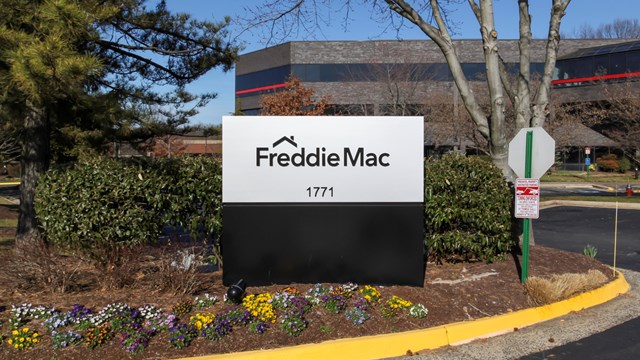A proposal to ban federal lenders from purchasing loans in co-ops that use flip tax fees or condos with deed-based transfer fees has housing community leaders worried the ruling would lead to diminished operating budgets and severely disrupt the cooperative and condominium market.
The proposed rule, originating with the Federal Housing Finance Agency (FHFA), would prohibit Fannie Mae, Freddie Mac and Federal Home Loan Banks from purchasing loans in buildings that have either deed-based, or private transfer fees or flip taxes.
Private transfer fees—typically one percent of the sales price and specified in the original condo documents—are fees paid when a condo unit is resold. They are paid from the purchaser to one of three groups: the board or the community association, groups associated with the board or the community association (like open-space land trusts), or third-party developers or investors. Transfer fees paid to the first two groups are generally seen as benefiting condominiums, while those paid to third parties are almost universally scorned as wasteful.
In the New York cooperative community, the fee is commonly called a flip tax. Flip taxes are typically paid when an apartment is "flipped" or changes hands. Flip taxes generally range from about one to three percent of the resale price (although higher percentages exist) or could be based on several methodologies, including a per share amount, flat fee, percentage of sales price, or percentage of net profit.
Effect on Co-ops <bold, subhead>
A 60-day comment period on the rule ended in mid-October, and the FHFA is currently deciding whether to implement, scrap or revise the ban. FHFA General Counsel Alfred Pollard says the agency will “move with deliberate” speed to come to a decision on the rule, but notes that a decision will not come anytime soon.
According to Greg Carlson, executive director of the Federation of New York Housing Cooperatives and Condominiums (FNYHC) and the vice president of the National Association of Housing Cooperatives (NAHC), both of which groups are in opposition, the FHFA received in the neighborhood of approximately 2,900 responses or comments on the proposed regulations. However, Carlson says, the wheels of government turn very slowly so it may take a while to sort this all out.
The FHFA argues the proposed rule is necessary because “encumbering housing transactions with fees that may not be properly disclosed may impede the marketability and valuation of properties and adversely affect the liquidity of securities backed by mortgages on these properties.” Additionally, according to the FHFA, the fees can increase the cost of home ownership and “expose lenders, title companies and secondary market participants to risks from unknown potential liens and title defects.”
Carlson, however, maintains that the impact would be devastating to New York City's and the state's housing stock. Anywhere from 65 to 75 percent of New York City's cooperatives may be affected, Carlson believes. Buildings trying to get underlying mortgages or refinancing for capital improvements may also be affected by this new proposal, he says.
In addition to the Federation, the Council of New York Cooperatives and Condominiums (CNYC), the New York City Bar Association, the New York State Bar Association, the Real Estate Board of New York (REBNY) and other organizations, "are getting together because we want to try to nip this in the bud. It's already getting crazy without this FHFA rule," says Carlson.
REBNY President Steven Spinola also issued his own objections."The flip tax increased the capital reserve fund of these older residential buildings. This tax increased the reserve fund of these formerly rent regulated buildings, providing the capital for important and necessary improvements. This additional investment in our housing stock helped to stabilize and improve neighborhoods."
“Severe Disruption” to Condo Market
Also in the opposition corner is the Community Associations Institute (CAI), which hotly disputes the rationale against transfer fee bans. CAI Chief Executive Officer Thomas Skiba responds that claims that transfer fees impact the marketability of condos, are rarely disclosed or lead to title defects are simply not true. “CAI member communities report that such fees are disclosed at transfers of title, yet they also report that such fees are rarely, if ever, the basis of a lost sale or actions against title,” writes Skiba in a letter to FHFA.
Furthermore, says Andrew S. Fortin, CAI vice president of government and public affairs, the proposed rule is misguided. “Even though they talk about this as a transfer fee ban, it is not really a ban at all. It does not ban the transfer fees, it just says that federally-backed mortgages cannot go to those properties that have them,” he says.
The practical effect of the proposal could be devastating to ongoing and future condo sales around the country, says Fortin, who notes that a CAI nationwide survey conducted this fall determined that 47 percent of condos —with 11 million units—have transfer fees. “It would take 11 million properties across the United States—based on our survey—and say, ‘No mortgages for you.’ ”
Orest Tomaselli, chief executive officer of National Condo Advisors, LLC, also predicts severe disruption to the condo market if the rule is implemented. “There’s going to be a vacuum, there’s going to be a period of time when units are not going to be financed in a market where there’s no liquidity anywhere, and very few other lenders are willing to lend outside of the Fannie Mae and FHA guidelines,” says Tomaselli, whose firm helps condo projects obtain Federal Housing Administration (FHA), FNMA, and Veterans Administration (VA) project approval. “This specific guideline will create a period of time when there are homeowners who can’t close on their loans, refinances, or purchases, whatever they may be,” says Tomaselli, who notes the intent of the rule is to protect taxpayer money held by the federal agencies.
Tomaselli compares the new rule to FHA mortgage guidelines enacted earlier this year which mandated reserve fund contributions, a 15 percent limit on condo fees delinquencies, and the requirement that the condominium itself obtain FHA approval. Condos that didn’t adhere to the new guidelines found themselves losing sales, he says.
The bottom line if the proposed rule is enacted, says Tomaselli, is that “everybody [condos] is going to have to fall in line, so to speak, for them [potential buyers] to obtain financing … The key point here is they [condos] have to be compliant.”
Problems with Compliance
Also found in the CAI survey were potential difficulties by community associations in complying with the proposed regulation. Because transfer fees are typically embedded in the original condo documents, super majorities would be needed to remove them. According to the survey—collected from 1,254 communities in 40 states—70 percent of all condos would need at least a two-thirds vote to remove the fees from the condo docs.
Attorney Stephen Marcus, a founding partner with Marcus, Errico, Emmer & Brooks, P.C., in Braintree, Massachusetts, notes that getting the owner turnout or support to revoke the fee "could be difficult.” Getting the numbers would be especially difficult in vacation communities, where owners are not around often, or larger condos, with many owners to inform about the need to vote, says Marcus. “If you have 200 units, 100 units—it’s going to be a very tough vote to get.”
Most Transfer Fees Support Community
The CAI survey, conducted in September, also found that 99.2 percent of fees in responding communities are used to support the community itself. According to the survey, transfer fees generate up to $3 billion annually to fund community association projects, fund reserves or otherwise benefit residents. Breaking down the numbers further, the survey found that 62 percent of community transfer fees went to the operating budget, 24 percent to the reserve fund, 12 percent for capital projects funds, and 2 percent for charitable projects or foundations (.79 percent did not indicate where the fee monies went).
If transfer fee monies were lost because of this proposed regulation, 60 percent of communities reported in the survey that they would have to increase assessments to cover the lost revenue.
As an alternative to the FHFA ban, CAI supports letting individual states take up the matter. “We believe this is the issue for states to regulate, and there have been 17 states in the past years which have put in place regulations to deal with this,” says Fortin. “The state law is the right way to do it because that's where these things are typically regulated. The states actually have the authority to ban these fees, whereas FHFA does not. The FHFA only has authority over Fannie Mae, Freddie Mac and the Federal Home Loan Banks.” On the state level, transfer fees bans have targeted third-party developers or investors, says Fortin. CAI has argued that any transfer fee bans should be directed at those that funnel monies to third-party investors and not fees that support community associations.
Matter not Closed
Despite the comment period for the proposed rule being closed, Fortin says the FHFA is not immune to public opinion during its ongoing review period.
In late October, Fortin was on Capitol Hill seeking support for scrapping the ban and finding backers, among them Pennsylvania Congressman Paul Kanjorski (D-11th District), who serves as the chairman of the House subcommittee responsible for FHFA oversight.
In a letter to the FHFA, Kanjorski wrote that the rule could “severely curtail a critical funding stream used to support infrastructure development, maintenance and capital improvements in tens of thousands of homeowner associations across the United States.” Kanjorski also warned of further dire consequences in the housing market. “The net result of the implementation of this draft guidance [rule] therefore seems likely to decrease the value of millions of existing homes and cause further market disruptions.”
Fortin is now urging community association leaders to make their opinions known in Washington. “Everyone should be contacting their member of Congress to express their concern over this issue,” he says.
Jim Douglass is the managing editor of New England Condominium magazine, a Yale Robbins' publication. Additional reporting by The Cooperator's David Chiu.







Leave a Comment